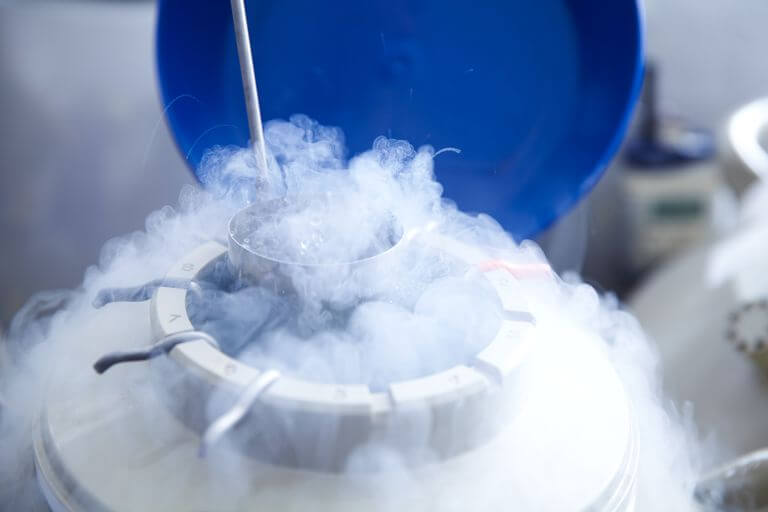This is mostly fact! At this time there are no federal regulations governing the disposition of frozen embryos after the dissolution of marriage. So divorcing couples must look to state law in handling disputes over frozen embyros.
Last week the Supreme Court of Connecticut ruled that previously frozen embryos can be destroyed pursuant to a couple’s written agreement. When they were married Jessica Bilbao and Timothy R. Goodwin used in vitro fertilization to produced several pre-embryos. They had one child using the embryos and cryopreserved the remaining ones.

Image Source: verywellfamily.com
The couple signed an agreement before freezing the embryos that anticipated certain contingencies. The agreement provided that in the event of divorce, the embryos would be destroyed in accordance with accepted medical procedures. But during the couple’s divorce, Timothy changed his mind. He wanted to preserve the embryos in case he and his wife ever reconciled. Or, if they never reconciled, he wanted the embryos to be donated to another couple.
The lower court in Connecticut ruled in the couple’s divorce case that the agreement was not a valid, enforceable contract, but awarded the embryos to the wife after finding that she had a stronger claim to the frozen embryos.
The husband appealed all the way to the Connecticut Supreme Court. In his appeal, Goodwin argued that an embryo is not property and that, even if it were, the lower court should have ruled in his favor “as the party seeking to preserve the pre-embryos because they are human beings.” However, the husband acted as his own lawyer during the divorce and failed to make this argument in the lower court.

Image Source: stockphoto.com
The state supreme court adopted a two-step approach used by a majority of the states. In the first step, the court decides whether the contract is valid and enforceable. But if there is no valid contract, the court weighs each party’s interest in the embryos.
The Connecticut Supreme Court found that the agreement was enforceable, which made moot the husband’s argument about preserving human life. The Supreme Court also noted that by failing to raise the issue of preserving life at the trial court, it was not reviewable on appeal. Thus, the Court dodged the question of whether the embryos should be destroyed on the basis of constituting human life.
Throughout its decision the court referred consistently to “pre-embryos.” The court explained, “Pre-embryo is a medically accurate term for a zygote or fertilized egg that has not been implanted in a uterus.” “It refers to the approximately 14-day period of development from fertilization to the time when the embryo implants in the uterine wall and the primitive streak, the precursor to the nervous system, appears. An embryo properly develops only after implantation.”
In California the law requires that IVF participants sign a Consent and Agreement form that sets forth advance written directives regarding the disposition of embryos.
In the California case of Findley v. Lee, a divorced woman argued that frozen embryos created during her marriage should be given to her because the embryos were her only opportunity to bear children.
Before the IVF procedures, the couple had agreed to destroy the embryos upon divorce. A Superior Court in California agreed with the ex-husband, ruling that the consent agreement remained a valid and enforceable contract under California law.
What do you think? Should embryos be subject to written contracts to have them destroyed? Should agreements between couples ever not be upheld?










Print Leaf has saved the day for me several times! Not sure how I ended up on this page but wanted to thank you guys again for the quick order